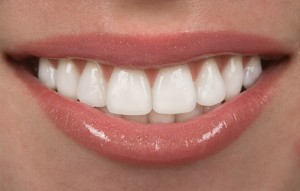As children mature from infancy to toddler to teen, they experience a variety of situations that may cause a myriad of emotions. Most of these emotions they will experience for the first time, and what better way to handle the external pressure than to revert to comfort. A pacifier or thumb, similar to blankets and soft toy-animals, may provoke the feeling of safety and reassurance when called upon. Although seemingly harmless, pacifiers and thumbs could be harming your child’s oral health and development. Dr. Stewart, offering children’s dentistry services, discusses the effect of each habit your child may be forming. (more…)
Root Canal Therapy Relieves Pain
A rumor spreads similar to bacteria in the mouth. If there is a lack of preventive oral care, the infectious bacteria will grow and flourish. Similar to this concept, rumor’s spread due to a lack of knowledge. As someone brings forth a rumor, those without the know-how or knowledge of mentioned subject typically fall into the trap of believing the hearsay, but those educated, whether self-taught or not, tend to question the speaker. Dr. Stewart would like to educate you on how root canal’s relieve pain, not cause it, so that when you encounter someone complaining about their RC therapy, you can educate them with the truth. (more…)
Beat Bad Breath
Bad breath (halitosis) exists as a condition familiar among many adults. The presence of unpleasant breath affects social and intimate interactions. People generally mask the issue with gum, mints, or mouthwashes, but their efforts produce temporary results. Certain foods and health conditions paired with poor oral hygiene typically cause some kind of foul odor to emit from the mouth, eventually. Ignoring the issue, or continuing to mask it with over-the-counter products allows for an interim smell to remain. Dr. Stewart encourages you to visit him and our team for a dental examination to determine the status of your oral health.
(more…)
Periodontal Disease Linked To Systemic Health
Many people may not understand that periodontal (gum) disease is a progressive condition. The disease becomes more severe the longer left untreated. Not only does this evoke further dental health concerns, but it also plays a role in affecting the rest of your body. Researchers have discovered that your oral health status could play a major role in maintaining a healthy body or regulating existing conditions. (more…)
Visit Your Family Dentist in Livonia, MI
Age shouldn’t deter you from visiting your family dentist. Children as young as one and seniors as old as 102 should consistently attend general checkups and cleanings to ensure optimum oral health. Dr. Stewart and our team believe in building lasting relationships with our patients, educating them on oral health, and providing comprehensive care that will assist them in maintaining oral health longevity. Your family dentist in Livonia, MI, Dr. Stewart, encourages you to schedule an appointment for yourself or a loved one. (more…)
Arbor Day Brings Out the Dental-Nut in Us
Happy Arbor Day from all of us at the Dr. James Stewart dental practice in Livonia, MI, recognized as a Tree City USA by The National Arbor Day Foundation for the last 15 years. Join the celebration, and plant a tree this weekend. Buchanan Elementary students passed out seedlings and literature today for the the community’s Arbor Day event, coordinated by the Livonia Tree City Committee. Of course, as dental professionals, we always celebrate Arbor Day. Just check out these tree-related dental practices and remedies.
Building Teeth for Two – Pregnancy and Oral Health
Baby teeth start budding before your precious bundle ever makes an appearance, as early as in the third month of pregnancy. That means, whether you are eating everything in sight or noshing sparingly on saltines, your nutritional choices today impact your baby’s future oral health. (more…)
What to Expect With Your Dental Health When You’re Expecting
Swollen ankles. Nausea that strikes randomly. And wildly-fluctuating hormone changes that could make a saint swear.
Ahh, the glow of pregnancy.
Your body is changing and growing so rapidly, it is easy to overlook your teeth during the nine (let’s be honest, it’s more like ten) months of growing your little peanut. Here are some dental health situations you may face and how to address them, as recommended by the American Dental Association. (more…)
Is Teeth Whitening Right for You?
 Teeth whitening is commonly used to reduce or eliminate stains on tooth enamel. Discolored teeth can negatively affect your confidence and, according to a poll by the AACD, stained teeth can make you appear less intelligent, successful, and friendly than someone with a bright white smile. Kelton Research published a study that indicated, after teeth whitening, job candidates were more likely to receive a job offer and a higher pay rate than interviewees who did not whiten their teeth.
Teeth whitening is commonly used to reduce or eliminate stains on tooth enamel. Discolored teeth can negatively affect your confidence and, according to a poll by the AACD, stained teeth can make you appear less intelligent, successful, and friendly than someone with a bright white smile. Kelton Research published a study that indicated, after teeth whitening, job candidates were more likely to receive a job offer and a higher pay rate than interviewees who did not whiten their teeth.
Most people feel confident and less inhibited in connecting with others by smiling if our teeth have a bright, white appearance. Perhaps this is a primary reason one visit teeth whitening is a popular option for people who want a brighter smile and/or want to remove unsightly stains from their teeth. (more…)
SedationDentist : The Truth About Nitrous Oxide
Before undergoing any dental procedure that may require anesthesia or sedation, it is helpful to have a general understanding about the most common options and how they work to relieve stress and fear prior to dental procedures. One of the most popular sedatives in dentistry, which has been used for many decades, is a substance called nitrous oxide.
You’ll learn some of the most critical things you should know about this sedative and how it may provide a more pleasant experience during procedures. (more…)



